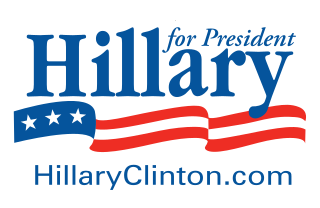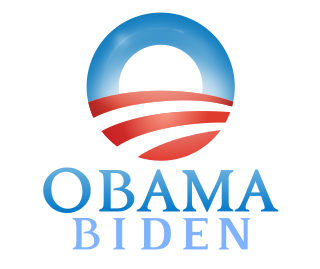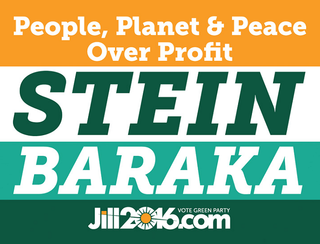In the United States, a political action committee (PAC) is a tax-exempt 527 organization that pools campaign contributions from members and donates those funds to campaigns for or against candidates, ballot initiatives, or legislation. The legal term PAC was created in pursuit of campaign finance reform in the United States. Democracies of other countries use different terms for the units of campaign spending or spending on political competition. At the U.S. federal level, an organization becomes a PAC when it receives or spends more than $1,000 for the purpose of influencing a federal election, and registers with the Federal Election Commission (FEC), according to the Federal Election Campaign Act as amended by the Bipartisan Campaign Reform Act of 2002. At the state level, an organization becomes a PAC according to the state's election laws.
A 527 organization or 527 group is a type of U.S. tax-exempt organization organized under Section 527 of the U.S. Internal Revenue Code. A 527 group is created primarily to influence the selection, nomination, election, appointment or defeat of candidates to federal, state or local public office.
Lyndon LaRouche's United States presidential campaigns were a controversial staple of American politics between 1976 and 2004. LaRouche ran for president on eight consecutive occasions, a record for any candidate, and tied Harold Stassen's record as a perennial candidate. LaRouche ran for the Democratic nomination for President of the United States seven times, beginning in 1980.
Matching funds are funds that are set to be paid in proportion to funds available from other sources. Matching fund payments usually arise in situations of charity or public good. The terms cost sharing, in-kind, and matching can be used interchangeably but refer to different types of donations.

The financing of electoral campaigns in the United States happens at the federal, state, and local levels by contributions from individuals, corporations, political action committees, and sometimes the government. Campaign spending has risen steadily at least since 1990. For example, a candidate who won an election to the House of Representatives in 1990 spent on average $407,600, while the winner in 2022 spent on average $2.79 million; in the Senate, average spending for winning candidates went from $3.87 million to $26.53 million.
The presidential election campaign fund checkoff appears on US income tax return forms as the question "Do you want $3 of your federal tax to go to the Presidential Election Campaign Fund?".

The 2008 presidential campaign of Hillary Rodham Clinton, then junior United States senator from New York, was announced on her website on January 20, 2007. Hillary Clinton was previously the First Lady of the United States and First Lady of Arkansas prior to her election as U.S. Senator from New York. She is also the wife of former President Bill Clinton. Clinton was the source of much media speculation since having expressed interest in being a candidate in the 2008 presidential election since at least October 2002.

On February 10, 2007, Barack Obama, then-junior United States senator from Illinois, announced his candidacy for the presidency of the United States in Springfield, Illinois. Obama announced his candidacy at the Old State Capitol building, where Abraham Lincoln had delivered his "House Divided" speech. Obama was the main challenger, along with John Edwards, to front-runner Hillary Clinton for much of 2007. He had only recently emerged as a national figure in Democratic politics, having delivered the DNC keynote address just three years prior and won his Senate election shortly thereafter.
The 2008 presidential campaign of John Edwards, former United States Senator from North Carolina and Democratic nominee for Vice President in 2004 began on December 28, 2006 when he announced his entry into the 2008 presidential election in the city of New Orleans near sites devastated by Hurricane Katrina. On January 30, 2008, Edwards returned to New Orleans to announce that he was suspending his campaign for the Presidency. On May 14, 2008, he endorsed Barack Obama at a campaign event in Grand Rapids, Michigan.

Joe Biden, a longtime U.S. senator from Delaware, began his 2008 presidential campaign when he announced his candidacy for President of the United States on the January 7, 2007, edition of Meet the Press. He officially became a candidate on January 31, 2007, after filing papers with the Federal Election Commission.
Moneybomb is a neologism coined in 2007 to describe a grassroots fundraising effort over a brief fixed time period, usually to support a candidate for election by dramatically increasing, concentrating, and publicizing fundraising activity during a specific hour or day. The term was coined by Trevor Lyman to describe a massive coordinated online donation drive on behalf of presidential candidate Ron Paul, in which context the San Jose Mercury News described a moneybomb as being "a one-day fundraising frenzy". The effort combines traditional and Internet-based fundraising appeals focusing especially on viral advertising through online vehicles such as YouTube, Twitter, and online forums. In the case of lesser-known candidates it is also intended to generate significant free mass media coverage the candidate would otherwise not receive. Moneybombs have been used for grassroots fundraising and viral activism over the Internet by several 2008 presidential candidates in the United States. It emerged as an important grassroots tool leading up to the 2010 midterm elections and 2012 presidential election in the United States.
In politics, grassroots fundraising is a fundraising method that involves mobilizing local communities to support a specific fundraising goal or campaign. It has been utilized by American presidential candidates like Howard Dean, Barack Obama, Ron Paul, and Bernie Sanders.
The American Leadership Project (ALP) was a political organization in the United States, active during the 2008 Democratic presidential primary elections and the subsequent presidential election. It was an unincorporated association organized under section 527 of the IRS code, formed in February 2008. The ALP did not endorse any candidate, and was not officially linked with any candidate's committee, but ran adverts before primary elections in the states of Texas, Ohio, Pennsylvania, and Indiana in support of Hillary Clinton and against Barack Obama. After the conclusion of the primary season, when Obama became the Democratic nominee, the organization ran several campaign ads against his Republican opponent John McCain.

Barack Obama, then junior United States senator from Illinois, announced his candidacy for president of the United States on February 10, 2007, in Springfield, Illinois. After winning a majority of delegates in the Democratic primaries of 2008, on August 23, leading up to the convention, the campaign announced that Senator Joe Biden of Delaware would be the vice presidential nominee. At the 2008 Democratic National Convention on August 27, Barack Obama was formally selected as the Democratic Party nominee for president of the United States in 2008. He was the first African American in history to be nominated on a major party ticket. On November 4, 2008, Obama defeated the Republican nominee, Senator John McCain of Arizona, making him the president-elect and the first African American elected president.

During the 2012 presidential primaries, 51 individuals sought the nomination of the Democratic Party. Incumbent President Barack Obama won the nomination unanimously at the 2012 Democratic National Convention and was re-elected as president in the general election by defeating Republican nominee Mitt Romney. As expected for the incumbent president, Obama won every primary election, but faced more difficulty than projected. Fifteen additional candidates appeared on primary ballots, and of these, four appeared on more than one ballot. Four qualified for convention delegates including: attorney John Wolfe, Jr., prison inmate Keith Russell Judd, perennial candidate Jim Rogers, and anti-abortion activist Randall Terry. Each of these had their delegates stripped prior to the convention due to technicalities.

On April 4, 2011, Barack Obama, the 44th president of the United States, announced his candidacy for re-election as president. On September 5, 2012, he again became the nominee of the Democratic Party for the 2012 presidential election. Along with his running mate, Vice President Joe Biden, Obama was opposed in the general election by former Massachusetts Governor Mitt Romney, along with various minor candidates from other parties. The election took place on Tuesday, November 6, 2012.

John McConnell Wolfe Jr. was an American attorney and perennial political candidate. He was the Democratic nominee for Tennessee's 3rd Congressional District in 2002 and 2004. He was best known for having challenged President Barack Obama for the Democratic Party's 2012 presidential nomination. He ultimately emerged as the most successful challenger, receiving the second-highest number of delegates (23) and popular votes (116,639).

Jill Stein, a physician from Massachusetts, announced her entry into the 2016 United States presidential election on June 22, 2015. Stein had been the Green Party's presidential nominee in 2012, in which she received 469,627 votes. In the 2016 election, she once again secured the Green Party nomination and lost in the general election. She received 1.07% of the popular vote and no electoral college delegates.
Fundraising plays a central role in many presidential campaigns, and is a key factor in determining the viability of candidates. Money raised is applied for the salaries of non-volunteers in the campaign, transportation, campaign materials, media advertisements and other contingencies. Under United States law, officially declared candidates are required to file campaign finance details with the Federal Elections Commission (FEC) at the end of every calendar month or quarter. Summaries of these reports are made available to the public shortly thereafter, revealing the relative financial situations of all the campaigns.

The Hillary Victory Fund was a joint fundraising committee for Hillary for America, the Democratic National Committee (DNC), and 33 state Democratic committees. As of May 2016, the Fund had raised $61 million in donations.









